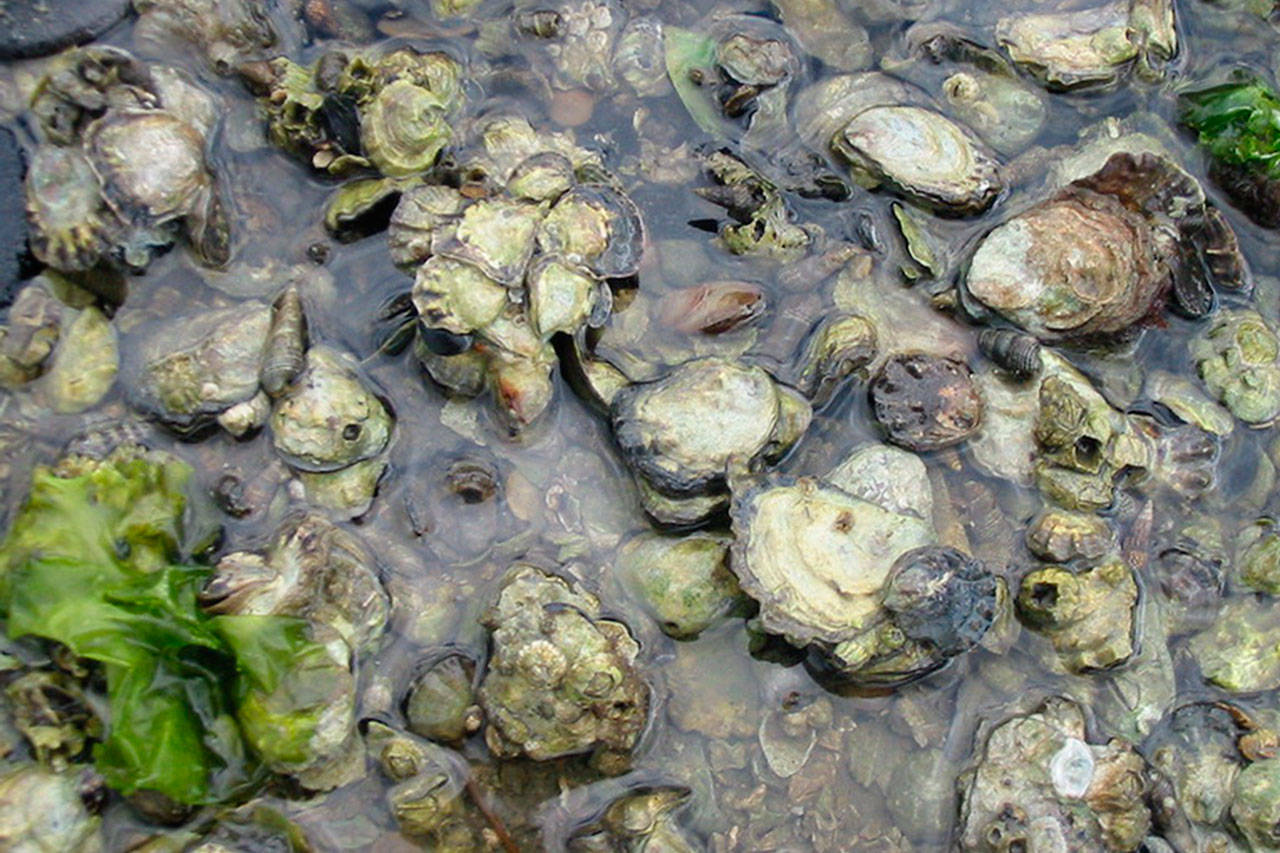By Pierre LaBossiere
Peninsula Daily News
PORT ANGELES — The Clallam County Department of Health and Human Services, Environmental Health Division announced Friday a downgrade to recreational shellfish harvesting in the Strait of Juan de Fuca due to biotoxins.
In Clallam County, the Strait of Juan de Fuca has been closed to all species of shellfish.
Meanwhile, Sequim Bay is closed to butter and varnish clams only. All species are closed on ocean beaches and Discovery Bay.
Species affected include clams, geoduck, oysters, mussels and other invertebrates such as moon snails. These closures do not apply to shrimp.
Crab meat is not known to contain biotoxins, but the guts can contain unsafe levels. Crabbers are encouraged to thoroughly clean crabs and discard the guts.
It is important to know the difference between butter clams and other species of clams because butter clams have the ability to retain toxins for up to a year or more. Areas may be closed for the sport harvest of butter clams when all other species are safe and open.
For more information about this closure, call the state shellfish safety hotline at 800-562-5632, or visit the state Department of Health’s shellfish safety website at www.doh.wa.gov/shellfishsafety.
These health-related closures are in addition to closures regulated by the Washington State Department of Fish and Wildlife. Fish and Wildlife closures can be found on their website: www.wdfw.wa.gov/fishing/shellfishing-regulations. That agency’s shellfish rule hotline is 866-880-5431.
Lake Quinault
The Quinault Indian Nation Friday announced that Lake Quinault will open to fishing and the use of resident boats, including power boats, from Saturday through Oct. 25. Only boats qualifying as “resident boats” are allowed on the lake, however.
The decision to reopen to resident boats only is part of the Quinault Nation’s process to help facilitate social distancing in light of the COVID-19 pandemic and to prevent the spread of invasive species such as zebra and quagga mussels, New Zealand mudsnails and invasive noxious weeds such as knotweed.
“We understand the desire to visit and access the full range of activities at Lake Quinault, but these challenging and unprecedented times require taking all necessary precautions to keep our citizens and visitors safe and healthy,” said Quinault Indian Nation President Fawn Sharp.

